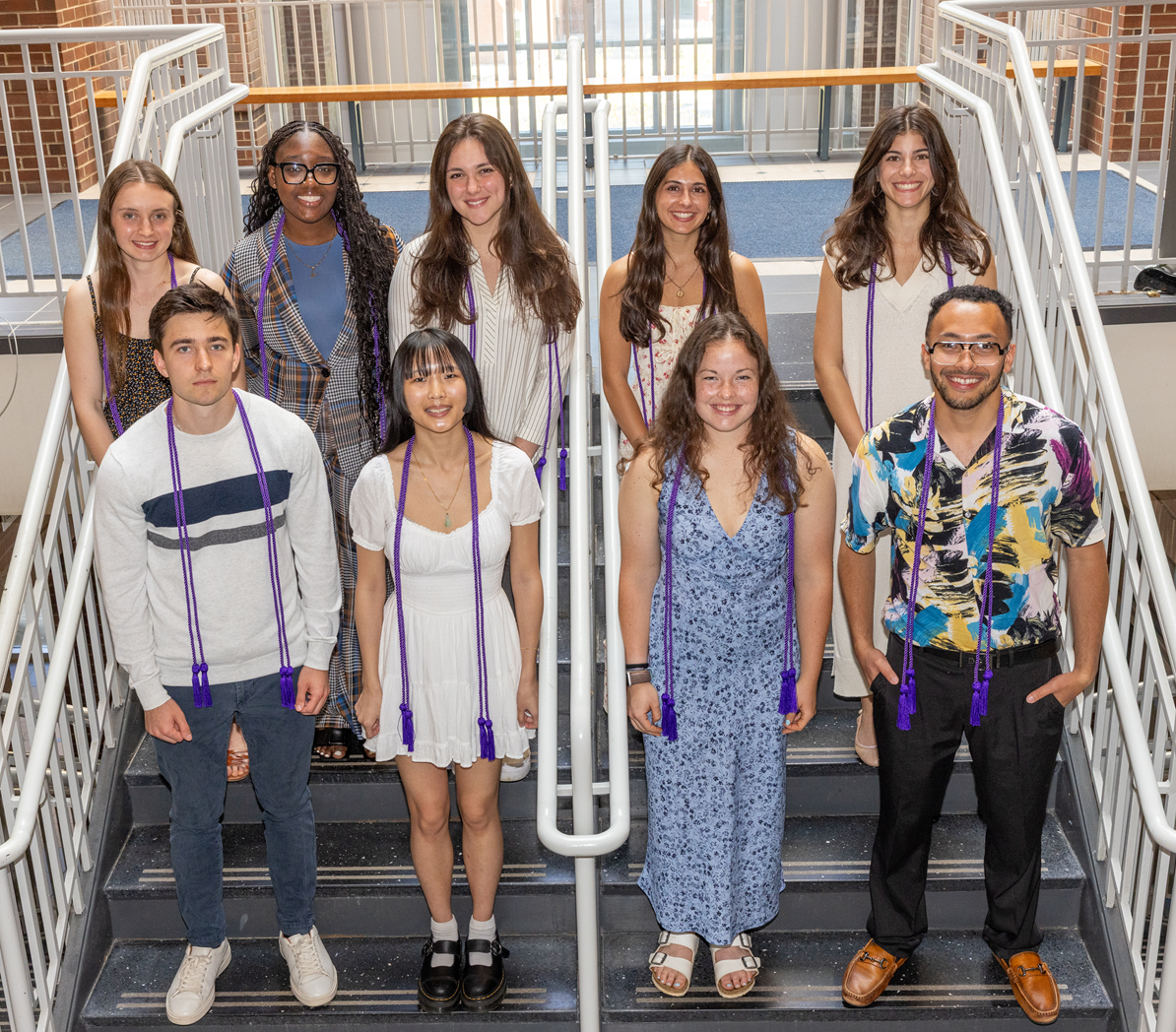- Apply
- Visit
- Request Info
- Give
General Program Information
The University Honors Program offers an enriched course of study for academically-talented, intellectually-curious, and research-oriented curious students. Honors Scholars take courses especially designed to encourage creative and critical thinking, communication, and self-directed learning, and they complete an original research project in the form of an Honors Thesis. Through the Honors Program, students become flexible and creative thinkers capable of dealing with complex problems, designing and implementing long-term projects, and becoming life-long learners and leaders.

Reasons to Join the Honors Program
Curricular: Challenging, stimulating, interdisciplinary seminars emphasize critical thinking, communication, research, and interdisciplinary learning.
Research: Honors Scholars pursue their own research questions and creative endeavors with one-on-one faculty mentorship in their majors. Honors Scholars often present their research at professional and undergraduate conferences, sometimes even publishing their work.
Social: The Honors Program is a learning community of students from a wide variety of majors. Through Honors courses, Honors Club, and Honors housing, students connect with their cohort in order to create a solid support network through the four years at Eastern.
Financial: Honors Scholars receive the University’s largest scholarships renewable for up to 4 years if Honors Program participation and progress requirements are met. Students also have access to funds that support conference travel and research costs.
Preparation for Life: This rigorous and stimulating program has a successful track record of preparing students to enter highly-competitive graduate schools, satisfying careers, and community leadership and service roles.
Applicant Eligibility Information
In general, applicants for first-year admission are expected to be in the top 10% of their respective high school classes, have a 3.8 cumulative GPA, have a combined score of 1200 or above on the SAT, and have experience in Honors or AP-level courses. In addition to applying for admission to the University, prospective students need to complete a separate online application form and essay and request teacher recommendations that address aptitude for Honors. Application links can be found on the Application page of the Honors website after November 1 with a due date of January 15. See our Application page for more info about eligibility.
Most years we also have a limited number of spots for continuing or transfer students to join the Honors Program as sophomores. Applicants must have a cumulative grade point average of 3.5 or above, have strong support from university faculty, and fewer than 45 credits (not counting college credits earned in high school). Continuing/Transfer Applications are due by April 1. See our Application page for instructions.
Standards for Retention and Progress in the Program
To maintain good standing in the program students must (1) meet the following minimum cumulative GPA standards: First-year students 3.30; Sophomores 3.40; Juniors 3.45; Seniors 3.50, (2) maintain 12 graded credits each semester (exceptions require Honors Director approval), (3) complete at least one Honors course per academic year and stay on track for Honors Program completion, and (4) demonstrate active involvement in the co-curricular activities of the Honors Program and the University community.

